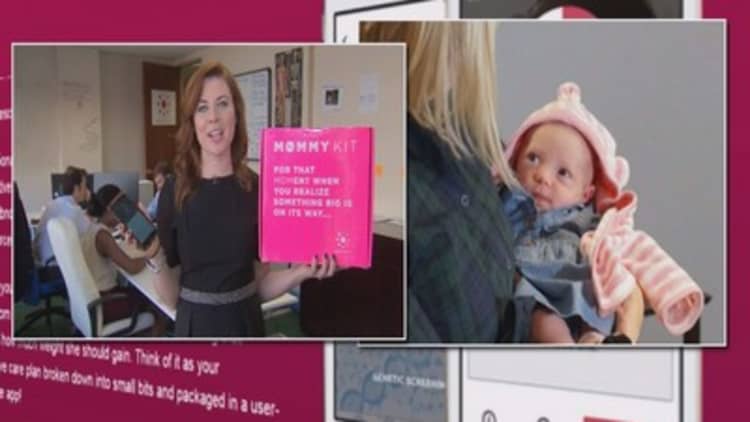
Modern mothers today want to be connected to more than just Facebook friends during their pregnancies, and D.C.-based start-up Babyscripts is leveraging that desire to improve care for expecting mothers before and after birth.
The company has developed an online program that is sold to doctors. The physicians sign up expectant moms, who might benefit from Babyscripts. Patients receive a Mommy Kit that includes a blood pressure cuff and scale that are wireless and FDA-approved. The devices remotely collect data from moms-to-be and send them to doctors to monitor via an app.
The data are then used to identify patients who may have readings outside of established parameters. The cost is around $300 per pregnancy for doctors, who can get volume-based discounts depending on how many patients they sign up, and free for expecting moms.
"Health care is rife with problems across the board. So we thought, why not use technology to improve outcomes and lower the cost of care?" says Anish Sebastian, chief executive and co-founder of Babyscripts. Patient data is collected in real time, and Babyscripts can notify health providers of any issues.
Sebastian and co-founder Juan Pablo Segura came up with the concept while working at Deloitte. They launched the company in 2013, and have raised just more than $2 million from GE Ventures and 1776. The company began originally in partnership with George Washington University Hospital as part of a clinical study. In the 10 months it's been on the market, Babyscripts has been able to penetrate about 60 percent of the hospitals in the D.C.area, Sebastian says. Today, nearly 300 doctors are using the product, which primarily targets low-risk pregnancies.
New moms like Sarah Nicholson, who is also Babyscripts' business development manager, will continue to use the app and devices until about six weeks after giving birth.
"It was great for me at home to see if I was in safe weight and blood pressure ranges," said Nicholson, who gave birth to her first daughter in mid-September. "And it's important to monitor those things postpartum."
By the end of the year, co-founder and president Segura said, the company will have at least 1,000 pregnancies that will either be on the program or will have gone through it. They hope to put all of that data to good use and may add more devices to the Mommy Kit.
Read MoreStart-up shielding companies and citizens from drones





